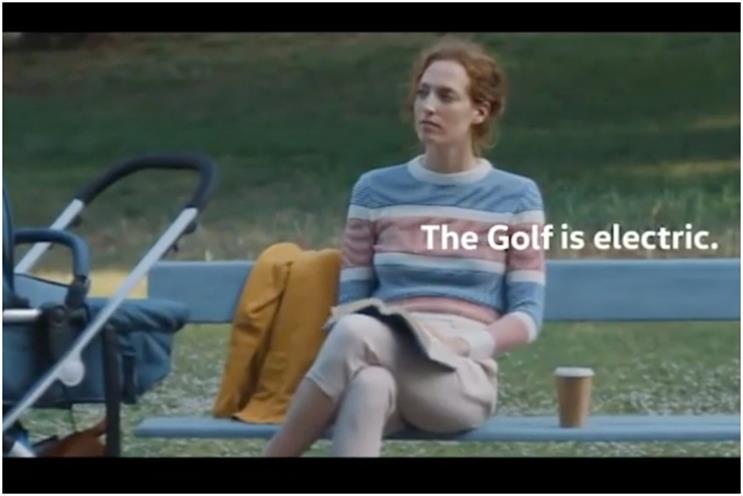
The IPA and ISBA have expressed "confusion" and "concern" over the Advertising Standards Authority's decision to ban ads by Mondelez and Volkswagen for breaking rules over harmful gender stereotyping.
Richard Lindsay, director of legal and public affairs at the IPA, said the ASA’s rulings on the Volkswagen and Mondelez ads were "surprising and concerning".
The ASA banned the ads, for Philadelphia and Volkswagen eGolf, in its first rulings since new rules around harmful gender stereotyping came into force in June. The ASA defended its position and said harmful gender stereotypes, cumulatively and over time, impacted people’s choices, aspirations and opportunities.
"We question how either can really be considered likely to cause harm, or serious or widespread offence," Lindsay said of the ads.
The Philadelphia ad, made by Ogilvy Paris, depicted two new fathers in a restaurant by a conveyor belt serving buffet food. One man was shown carrying a child in his arms and the other in a car seat. As they talk, one man absentmindedly places his child on the moving conveyor belt. "Let's not tell mum," he says, having moved across the room to pick the baby up.
The Volkswagen spot featured the strapline "when we adapt, we can achieve anything". It shows a couple going to bed in a tent having climbed a steep rockface, a man in space, and an athlete with a prosthetic running leg before panning on to a woman sitting quietly on a bench reading next to a baby's pram. It was created by DDB Europe and adapted by Adam & Eve/DDB for the UK market.
Likely impact on advertisers
Lindsay added: "The IPA welcomed the introduction of the new rule, but we stressed the importance of ensuring that its implementation, along with the accompanying guidance, avoided unintended, damaging consequences, such as the stifling of creativity or the creation of new stereotypes. These rulings raise many questions and are bound to cause confusion in the industry over whether, and if so how, ads are able to feature people going about their daily lives.
"The ASA itself acknowledges in its report, Depictions, Perceptions and Harm, that most ads aren’t problematic. The introduction of the new rule and guidance – or the ASA’s interpretation of them – may be likely to cause more harm than good. We will be raising our concerns with the ASA on this issue."
ISBA also expressed concern over the rulings, which it said would likely have an impact on advertisers.
"As members of CAP, we sat as part of the working group which developed the new rule and guidance and are fully supportive of its introduction," Phil Smith, ISBA director general, said. "However, we find these initial rulings concerning both in terms of the precedent they set and the likely impact they will have on advertisers.
"In our view, the two decisions go beyond the letter and intent of the new rule and guidance and will likely create confusion for advertisers and the broader co-regulatory system as they seek to address the harmful gender stereotypes and outdated portrayals this rule was designed to tackle. We look forward to discussing this more with the ASA and our members in due course."
Gender stereotypes in advertising 'cause harm'
But the ASA in its ruling said both ads had breached the new rules. It said the Mondelez ad perpetuated "a harmful stereotype by suggesting that men were incapable of caring for children and would place them at risk as a result of their incompetence".
The Volkswagen ad, it said in the ruling, perpetuated harmful gender stereotypes by showing men engaged in adventurous activities in contrast to a woman in a care-giving role.
"By their nature, ads like these divide opinion, but these rulings are based on the guidance issued to advertisers on those gender stereotypical portrayals which are likely to be considered harmful," Craig Jones, director of ASA communications, said, adding that "as always" it would listen to industry feedback.
"The evidence which underpins the new rule shows the effect of harmful gender stereotypes, cumulatively and over time, on people’s choices, aspirations and opportunities – including the ‘hapless dad’ stereotype included in this week’s rulings.
"The contrast between the Volkswagen ad, where complaints were upheld, and the Nestle ad, where complaints were not upheld, helps advertisers understand where the line is being drawn on portrayals of stereotypical characteristics."



.jpg)
.jpeg)
